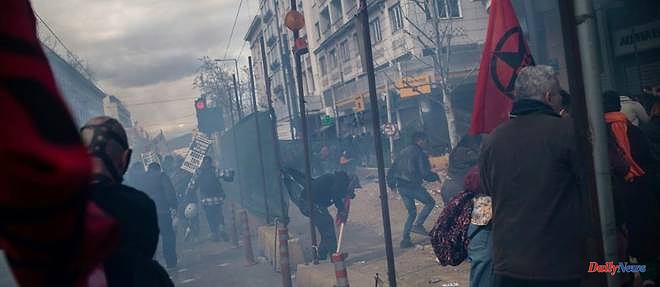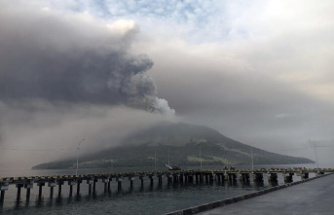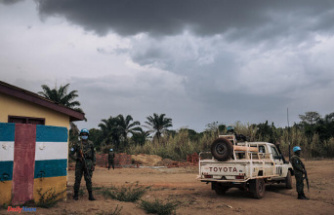Riot forces clashed Thursday in Greece with a group of demonstrators on the sidelines of rallies of tens of thousands of people, who again shouted their anger after the train disaster that killed 57 people at the end of February.
It is the second large-scale protest in Athens and other cities across the country since the head-on collision between two trains on the evening of February 28.
More than 40,000 people took to the streets, including more than 30,000 in the capital, according to police counts.
All of Greece is also on general strike for 24 hours while the anger is still strong and is directly aimed at the conservative government of Kyriakos Mitsotakis.
In central Athens, next to the parliament, a group of protesters threw Molotov cocktails and police responded by spraying them with tear gas and throwing stun grenades, according to AFP journalists.
Dumpsters were set on fire near the university, shop windows were smashed.
Some 14 people were arrested during the demonstrations, three of whom will be tried in immediate appearance according to the police. Five police officers were also injured, the Greek police said in a statement.
Part of the demonstrators also gathered in front of the headquarters of Hellenic Train, the railway company, as they had already done three days after the accident between a passenger train linking Athens to Thessaloniki (north) and a convoy of goods.
"Either their profits or our lives," wrote a protester on the facade of the building guarded by a police cordon.
"Murderers!" Schoolchildren also shouted as a large banner proclaimed, "Profits kill. With our massive struggles, we will overthrow them."
- "Things have to change"
In Thessaloniki, the country's second largest city in the north, incidents also took place on the sidelines of a parade of more than 8,000 people, according to AFP.
"Things have to change in this country," said Stravoula Ghatzieleftheriou, a private sector employee in Athens, as general elections are scheduled for July.
After several more limited demonstrations in the days following the train accident, some 65,000 people protested on March 8, with some calling on Prime Minister Kyriakos Mitsotakis, in power since 2019, to step down.
Public transport in Athens is severely disrupted on Thursday. All boats connecting the mainland to the islands remain docked for 24 hours and most planes remain on the tarmac.
Rail traffic, which has been stopped since the accident, should only gradually resume from March 22.
Many schools are also closed while students, on the front line in this unprecedented wave of protest since the years of the financial crisis, were also numerous in the processions.
Beyond the train disaster that shook the country, the Greeks are crying their fed up with the deterioration of public services in a country bled white by the years of crisis and the austerity plans imposed by its creditors .
Because if the Tempé rail accident, in the center of the country, was attributed to an error by the station master, it was also caused by the dilapidated state of the rail network and the heavy delays in modernization, in particular signaling , according to the first elements of the investigation.
Undermined after the disaster, the Prime Minister tried to respond to the indignation of a population which has largely lost confidence in the institutions since the financial crisis of 2009-2018.
He promised "total transparency" in the ongoing investigation and repeatedly asked for forgiveness from the families of the victims.
This movement of anger is particularly strong among young people and students, while many victims were in higher education.
"Tears (...) have become anger, the new generation does not forgive you," read one of the banners in central Athens.
The demonstrators hold up signs with the words "Call me when you arrive", a message from a mother to her child that has become the slogan of this protest.
The liberal daily Kathimerini in its last editorial evoked the revolt of the "bankruptcy and pandemic generation".
03/16/2023 18:36:31 - Athens (AFP) - © 2023 AFP












